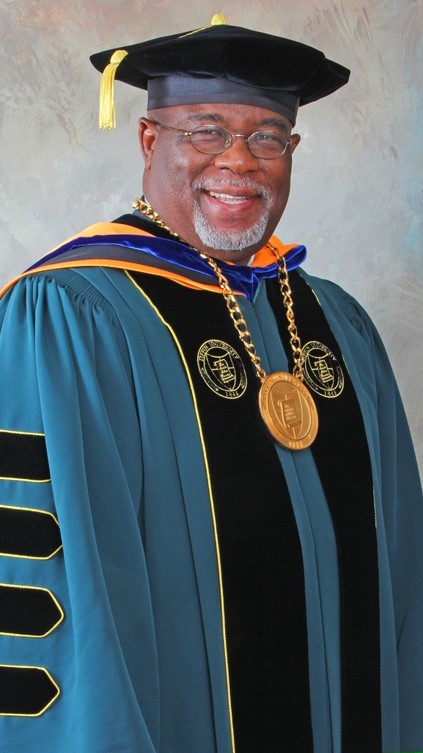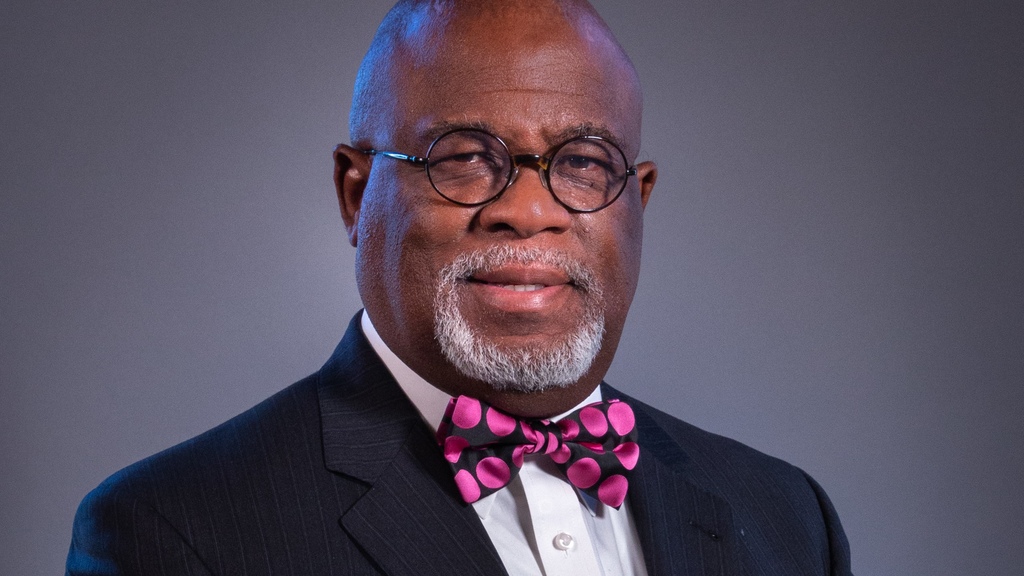As the fifth of seven children, Dr Curtis Charles had no real examples of academic success in his family.
His older siblings had all failed Common Entrance so it wasn’t much of a surprise when he suffered the same fate.
Today, however, Charles has defied his early beginnings and is leading the development of the School of Science, Computing and Artificial Intelligence Research at the University of the West Indies’ Five Islands campus in Antigua as the Director of Academic Affairs.
He has several degrees – a BA in Architecture from Howard University, a Masters in Architectural Science from Massachusetts Institute of Technology, a Masters in Predictive Analysis from Northwestern University, and a Ph.D. in Higher Education Administration from Morgan State University.
He has held various leadership positions at American universities, among them Interim Dean at Coppin University, President and CEO of Tiffin University and Senior Associate Vice Chancellor at Fayetteville University and worked at Microsoft as a Data Scientist for Higher Education among other jobs.
Charles credits an army of angels, people who saw his potential and worked with him to fulfill it for his success today.
As such, he is dedicated in his role as an academic to provide opportunities for those who face challenges in realising their dreams.
“I want to be able to give back and help students who are disenfranchised and underrepresented students, who like me who failed Common Entrance and didn’t have an opportunity,” he told Loop News.
Born in Arima, Trinidad, Charles was known as Slappy’s son, a nickname his father got while playing football at Queen’s Royal College. His father worked as a firefighter, his mother was a homemaker, and finances were scarce.
“My father had two vices, alcohol and horse racing. There was rum called Don Carlos and there were times when you would hear at the end of the month someone with a loud voice singing ‘Don Carlos by so’. It meant my father was coming home, pocket empty and stoned. But we were saved by my grandmother, who was an entrepreneur, a hard worker,” he recalled.
His older siblings didn’t pass Common Entrance so when he heard the words ‘Slappy Charles’ son failed exams’ over the intercom the day results were announced, Charles couldn’t envision the future the way it turned out.
“I had no hope. At that point in time, UWI was the only gig in town and there was no concept in my mind that I would ever qualify for UWI,” he said.
He noted that his father was intent on finding him a job but his mother predicted that he would migrate to the US and have a life there.
It took the help of what he called angels to realise that prediction.

Curtis Charles has held many leadership positions at American Universities among them Tiffin University where he was President
It began with the art teacher from the neighbouring high school, Mr Harris who took him under his wing to teach him art.
Charles remembers fondly sitting in Mr Harris’ house on Sundays, smelling the lunch cooking while he learned the rudiments of art from the teacher who called him Kartis instead of Curtis.
“I didn’t know that this man from St Kitts had a vision that he needed to invest in me so that decades later I would be a position to invest in the region,” Charles said in wonder at his full-circle moment.
It was Mr Harris who planted the seed in his mind that he should go abroad to study architecture since he loved art and that was a more commercially viable route.
One Mrs Joseph opened the doors for him to qualify to apply to American universities.
In 1977, Charles, who sang in the church choir and played guitar, was picked up by Mrs Joseph, a woman he had never seen before, to attend Assembly 77.
She was a British woman who had married a Trinidadian and suggested that Charles attend evening classes at Arima Secondary School where she taught. He said it was the first time the Government implemented extra-curricular classes for people like himself who failed Common Entrance.
From the ages of 17 to 19, Charles worked by day digging ditches to afford the tuition and at night, his younger brother who had passed Common Entrance for QRC, helped him to study add maths and encouraged him to do more subjects.
A girl from his youth group introduced him to Father Tam, then Principal of St Joseph’s College, where he was accepted to write O’levels six months before the exam.
Between his own efforts and St Joseph’s College, Charles passed all seven subjects and was accepted to Ohio State University, University of Miami, Washington State and Howard University.
Charles was, however, determined to go to MIT but was told by one person he approached for a recommendation that he could never accomplish that. That lit a fire in his soul.
“That was a turning point for me and at that point, I realised I needed to work harder. I knew if I didn’t get in for undergraduate I would get in to do graduate studies,” he said. Charles got into MIT to do his masters on a full scholarship paid for by a Japanese company.
Charles described his university experience as heady but lonely. Thankfully, he always had mentors, people who took him under their wings and pushed him to be his best.
Asked his advice to young people who feel hopeless because they, like him, didn’t grow up with examples to emulate, Charles said: “Surround yourself with some level of positive element.”
Noting that his involvement in the church led to opportunities, he stressed that nothing happens by accident.
“You got to believe in God, you got to believe there is a plan for your life that is more than what you see right now.”
In his role at Five Islands, Charles is helping to shape and create a future for poor, disenfranchised youth
Through the development of the School of Science, Computing and Artificial Intelligence Research, he is helping students prepare for the future. The School is the first of its kind on any UWI campus in the region.
He said: “When we opened the school last year, we enrolled 35 students that looked like me. None of them was born with a silver spoon, and none of them were from wealthy families. The reality is that we are working with a group of students who in three years will be the next computer scientists, the next information technology scientists, the next artificial intelligence experts in this region. And one of my focuses is to increase the number of females in the field too.”
“We cannot as a region in the Caribbean stick our heads in the sand and not prepare our students for the fourth industrial revolution and leave our students behind.”

